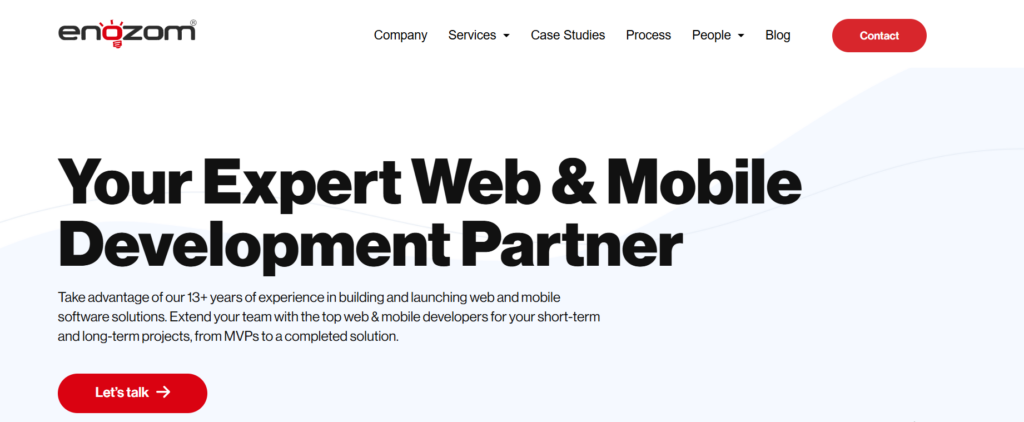The global software industry continues to expand rapidly, and Egypt is emerging as a significant player in the regional tech scene. With a growing base of talented developers, supportive governmental initiatives, and increasing digitization across industries, now is an opportune time to start a software company in Egypt. However, success in this competitive field requires more than just a good idea and coding skills. In this detailed guide, we delve into the most important advice for establishing a thriving software business in Egypt.
1. Understand the Local Market Dynamics
Before launching a software company in Egypt, it’s crucial to develop a deep understanding of the local market. Egypt has unique business customs, regulatory environments, and customer expectations that can significantly impact your success.
Start by researching the most demanded types of software in Egypt. Enterprise Resource Planning (ERP), FinTech applications, EdTech platforms, and digital transformation solutions for government services are all booming sectors. Consider local pain points: for instance, the inefficiency in manual processes in schools and small businesses opens opportunities for software automation.
Understanding the culture is just as critical. Egyptian businesses often value trust and long-term relationships over transactional interactions. This means networking, word-of-mouth, and referrals are vital for client acquisition. Attending local tech events, joining industry associations, and being visible in the community can go a long way in establishing your brand.
2. Legal Structure and Registration
Establishing the correct legal structure is a foundational step in starting a software business. Most entrepreneurs in Egypt choose to register their companies as Limited Liability Companies (LLCs) because of the legal protection and flexibility they offer. An LLC separates personal assets from business liabilities, which is especially important in the tech industry where project scopes and responsibilities can vary greatly.
To officially register your business, you’ll need to go through the General Authority for Investment (GAFI). The process includes preparing incorporation documents, selecting a company name, and submitting financial and ownership details. Engaging a local lawyer with experience in tech startups can help avoid bureaucratic delays.
Moreover, don’t overlook the importance of registering your intellectual property. While enforcement may still be evolving, having your trademarks, software, and branding protected can give you a strong legal footing and enhance your credibility with clients and investors.
3. Build a Strong Technical Team
Your team is your most valuable asset. Egypt produces thousands of engineering and computer science graduates each year from universities like Alexandria University, Cairo University, and Ain Shams University. These institutions offer a deep pool of enthusiastic, trainable talent.
However, competition for skilled developers is intense. To attract top-tier candidates, offer more than just a salary. Provide opportunities for learning and growth, such as certifications, courses, and conference attendance. A positive company culture that values creativity, autonomy, and work-life balance can also be a major draw.
Remote work is becoming increasingly accepted and even preferred by many developers. Offering flexible working conditions can help you recruit beyond your city and reach talent from other regions of Egypt and even neighboring countries.
4. Choose the Right Tech Stack
Choosing your technology stack should be based not only on current trends but also on long-term sustainability and team expertise. Popular choices in Egypt include:
Frontend: React.js, Angular
Backend: Node.js, Django, ASP.NET Core
Mobile: Flutter, React Native
Cloud: AWS, Microsoft Azure
Your choice of technology should also consider scalability, community support, and cost of development. For example, using open-source frameworks can lower your initial expenses while still offering powerful tools. It’s also wise to factor in the availability of local developers skilled in your chosen stack to avoid future recruitment challenges.
5. Focus on Product-Market Fit
Many startups fail because they build products without validating whether there’s a real demand. Product-market fit means your solution satisfies a significant need in a clearly defined market. To achieve this:
Start by talking to potential users. Surveys, interviews, and beta testing can provide invaluable insights. Develop a Minimum Viable Product (MVP) to test core features and refine based on feedback.
In Egypt, real problems often stem from inefficient workflows, lack of digitization, and reliance on paper-based systems. Your job as a software entrepreneur is to offer smart, user-friendly solutions that reduce friction and improve productivity.
6. Develop a Strategic Marketing Plan
Marketing is essential, especially in the early stages when you’re trying to gain traction. Your digital presence, branding, and communication strategies must resonate with your target audience.
Start with a professional, SEO-optimized website that clearly explains your services, showcases your portfolio, and includes client testimonials. Content marketing, such as blogs and whitepapers, can help establish thought leadership.
LinkedIn is the go-to platform for B2B marketing in Egypt. Regularly share updates, participate in industry discussions, and use paid promotions strategically to reach decision-makers. Additionally, register your company on directories like Clutch, GoodFirms, and local platforms to boost credibility.
Offering free trials, webinars, or consultations can also create initial touchpoints that lead to conversions.
7. Secure Funding and Financial Planning
Capital is the fuel for your business engine. While bootstrapping is common, especially in early stages, external funding can help accelerate growth.
Explore local investment networks like Cairo Angels, Alex Angels, and Flat6Labs, which specialize in supporting early-stage startups. Government initiatives from ITIDA and the Ministry of Communication and Information Technology also offer funding, training, and export support programs.
Implement solid financial planning from day one. Use accounting software to track expenses, forecast revenues, and ensure tax compliance. Hire a part-time financial advisor if necessary. Having transparent and organized finances can make your startup more attractive to investors and partners.
8. Build a Company Culture Early
Your company culture defines how your team collaborates, innovates, and overcomes challenges. It’s not just about perks like free snacks or fun outings; it’s about shared values and clear communication.
Set clear expectations and encourage feedback. Use collaborative tools like Slack for communication, Trello for task management, and Notion for documentation.
Promote diversity and inclusion by hiring from different regions, backgrounds, and experiences. A diverse team brings fresh perspectives and helps you build more universally applicable products.
9. Navigate Government and Regulatory Support
Egypt’s government is increasingly supportive of the tech ecosystem. Agencies like ITIDA offer various programs, including export rebates, innovation grants, and training subsidies.
Joining incubators and accelerators such as TIEC can provide mentorship, infrastructure, and access to investor networks. Staying updated on changes in tech-related laws can also help you align your business strategy with national priorities, such as digital transformation and financial inclusion.
Keep records organized, renew licenses on time, and ensure you’re paying the correct taxes to avoid legal complications that could hinder your operations.
10. Scale Smartly and Sustainably
Scaling a software business involves more than hiring more developers or acquiring more clients. It requires strategic planning, process optimization, and continuous improvement.
Focus on building repeatable systems for sales, customer service, and product development. Use analytics tools to measure key performance indicators such as churn rate, customer acquisition cost, and lifetime value.
Consider expanding into Gulf markets where demand for software services is high and language/cultural compatibility is strong. However, only scale once your internal processes are streamlined and your core team is stable.
Case Study Highlight: Enozom Software
One notable example of a successful software company in Egypt is Enozom Software, based in Alexandria. Established with a focus on delivering high-quality software solutions, Enozom has carved out a reputation for its commitment to both technical excellence and customer satisfaction.

Enozom offers a broad range of services including web development, mobile application development, and custom enterprise solutions. The company serves both local clients and international customers, showcasing Egypt’s potential as a global outsourcing destination.
What sets Enozom apart is its agile methodology and strong emphasis on communication, ensuring that every project aligns closely with client needs. They also maintain a culture of continuous learning, keeping up with the latest trends in technology and development practices.
For aspiring entrepreneurs, Enozom exemplifies how a software company in Egypt can thrive through strategic service offerings, attention to quality, and effective team building. Their growth story is an encouraging benchmark for others aiming to enter the market.
Frequently Asked Questions (FAQ)
Q1: How long does it take to register a company in Egypt?
The registration process typically takes 1 to 3 weeks through GAFI, depending on how complete your documentation is and how quickly approvals are granted. Hiring a local lawyer can speed up this process and help avoid delays due to unfamiliar legal steps.
Q2: Are there any free zones or tax incentives for tech startups?
Yes, Egypt offers various free and investment zones that include tax reductions and customs benefits. Startups can also benefit from ITIDA programs that support exports and innovation. These incentives can reduce startup costs and promote growth.
Q3: Do I need a local partner to start a business in Egypt?
No, Egypt permits 100% foreign ownership for many business types. However, having a local partner or advisor can be advantageous in navigating cultural, regulatory, and operational challenges within the local market.
Q4: How can I find my first clients as a software company in Egypt?
Start with networking—reach out to personal contacts, attend local business events, and leverage social platforms. Offering discounted pilot projects or consultations can build trust and generate initial client success stories.
Q5: Is English widely used in the Egyptian tech industry?
Yes, English is the dominant language for programming, documentation, and business communication in Egypt’s tech sector, particularly when working with international clients or outsourced development projects.
Q6: What are some common challenges for startups in Egypt?
Key challenges include bureaucracy, difficulty accessing early-stage funding, and limited infrastructure. However, these are being addressed through new government initiatives and growing private-sector involvement in the startup ecosystem.
Q7: What tools are commonly used by Egyptian software companies?
Popular tools include project management software like Jira and Trello, communication platforms such as Slack and Zoom, and cloud services like AWS and Azure. Many companies also use GitHub or GitLab for version control and collaborative coding.
Q8: Can I outsource part of my development abroad from Egypt?
Yes, many Egyptian companies outsource specialized tasks to freelancers or agencies abroad. It is important, however, to ensure clear communication, signed contracts, and intellectual property agreements to avoid misunderstandings.
Q9: How important is mobile app development in Egypt?
Mobile usage in Egypt is high, making mobile app development crucial for customer-facing solutions. Many startups focus on mobile-first strategies using frameworks like Flutter and React Native to reach a wide audience across platforms.
Q10: Are there coworking spaces suitable for tech startups?
Yes, Egypt has a growing number of coworking spaces ideal for tech startups, especially in cities like Cairo, Alexandria, and Giza. Spaces like The Greek Campus, AlMaqarr, and IceAlex offer networking opportunities, internet, and event ho
Q11: What are some government programs supporting software startups?
Programs by ITIDA, TIEC, and the Ministry of Communications offer training, incubation, grants, and export subsidies. These initiatives are designed to boost innovation and increase Egypt’s competitiveness in the global tech market.
Conclusion
Starting a software company in Egypt is a promising yet complex endeavor. From legal formalities to cultural nuances, and from technical decisions to marketing strategies, each step requires thoughtful planning and execution.
With Egypt’s growing emphasis on digital transformation, increased availability of tech talent, and supportive entrepreneurial environment, the time has never been better. By following these detailed guidelines, you position your startup for long-term success in both local and global markets.
Stay agile, stay informed, and most importantly, stay committed to solving real-world problems with innovative technology.
